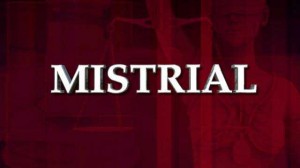 In a trial for injuries resulting from a car accident, the trial court ordered the defense lawyer to refrain from asking a certain question until a foundation was made demonstrating the witness had the expertise to testify on that issue, and that the court would make the foundation determination outside the presence of the jury. One of the first things defense counsel asked the witness was the prohibited question. The trial court denied plaintiff’s motion for mistrial, gave a strong admonition to the jury and fined the defense lawyer $500. The appellate court affirmed the underlying judgment in favor of the defendant, finding the trial court acted within its discretion. The appellate court added: “We strongly disapprove of [Gregory] Kane’s behavior. If it were up to us, he would have been sanctioned far more than $500. But the law is the law, and we must follow the relevant legal standards. Based on those standards, the trial court did not err by denying either of plaintiff’s motions. By stating our position in a published opinion, we have satisfied our obligation to take appropriate corrective action as required by Canon 3D(2) of the California Code of Judicial Ethics.” [Canon 3D(2) states: “Whenever a judge has personal knowledge, or concludes in a judicial decision, that a lawyer has committed misconduct or has violated any provision of the Rules of Professional Conduct, the judge shall take appropriate corrective action, which may include reporting the violation to the appropriate authority.”] (Pope v. Babick (Cal. App. Fourth Dist., Div. 3; September 18, 2014) 229 Cal.App.4th 1238, [178 Cal.Rptr.3d 42].)
In a trial for injuries resulting from a car accident, the trial court ordered the defense lawyer to refrain from asking a certain question until a foundation was made demonstrating the witness had the expertise to testify on that issue, and that the court would make the foundation determination outside the presence of the jury. One of the first things defense counsel asked the witness was the prohibited question. The trial court denied plaintiff’s motion for mistrial, gave a strong admonition to the jury and fined the defense lawyer $500. The appellate court affirmed the underlying judgment in favor of the defendant, finding the trial court acted within its discretion. The appellate court added: “We strongly disapprove of [Gregory] Kane’s behavior. If it were up to us, he would have been sanctioned far more than $500. But the law is the law, and we must follow the relevant legal standards. Based on those standards, the trial court did not err by denying either of plaintiff’s motions. By stating our position in a published opinion, we have satisfied our obligation to take appropriate corrective action as required by Canon 3D(2) of the California Code of Judicial Ethics.” [Canon 3D(2) states: “Whenever a judge has personal knowledge, or concludes in a judicial decision, that a lawyer has committed misconduct or has violated any provision of the Rules of Professional Conduct, the judge shall take appropriate corrective action, which may include reporting the violation to the appropriate authority.”] (Pope v. Babick (Cal. App. Fourth Dist., Div. 3; September 18, 2014) 229 Cal.App.4th 1238, [178 Cal.Rptr.3d 42].)
Leave a Reply
You must be logged in to post a comment.